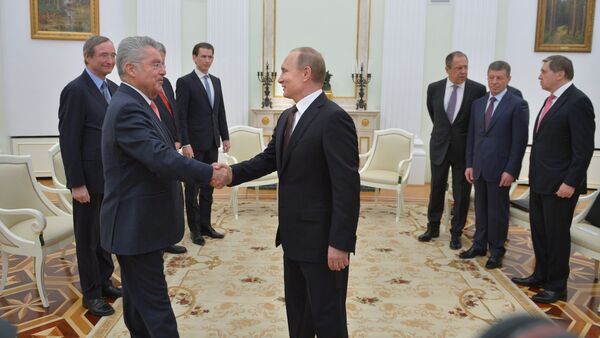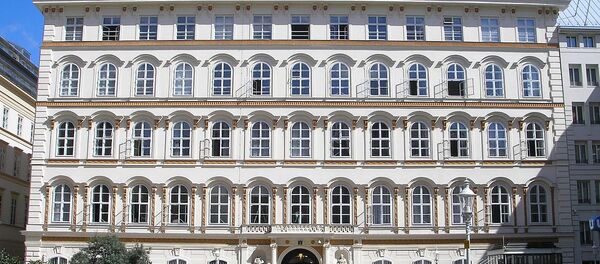"The ones, who are interested in the development of good economic relations between Europe and Russia they are not excited about the existence of these sanctions… But I should say that Austria is a loyal EU member and it must adhere to the decisions that have been made in regard to Russia," Fischer said at a meeting with Russian President Vladimir Putin.
He added that the implementation of the Minsk peace agreements was closely tied to the thaw in the relations between Moscow and Brussels.
Relations between Russia and the EU member states, including Austria, went downhill in 2014, when Brussels joined Washington in accusing Moscow of fueling the Ukrainian crisis and imposed several rounds of sanctions as a punitive measure. Russia has repeatedly refuted the allegations and responded with an embargo on food products from the countries that sanctioned it.
In February 2015, a peace agreement was signed between the two sides of the Ukrainian conflict — the Kiev authorities and southeast Ukrainian militias — in the Belarusian capital, Minsk. The deal stipulates a full ceasefire, a weapons withdrawal from the line of contact in eastern Ukraine, an all-for-all prisoner exchange and constitutional reforms, which would give a special status to the war-torn Donbas region. Both sides have reported multiple violations of the ceasefire.



